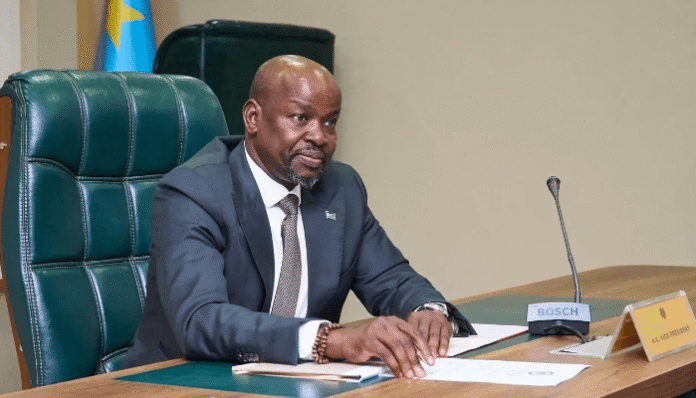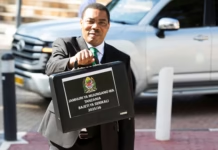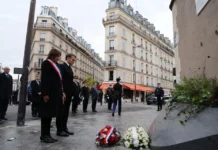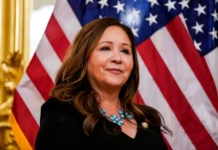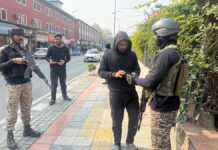South Sudan’s leader Salva Kiir has dismissed one of his vice-presidents, Benjamin Bol Mel, who had been tipped as his possible successor.
Kiir stripped Bol Mel of his military rank of general and dismissed him from the national security service. He also sacked the central bank governor and the head of the revenue authority, both considered close allies of Bol Mel.
No explanation was given for the dismissals, which were announced in a decree broadcast on state television.
It comes when there are growing fears of political instability and a possible return to civil war, after the recent collapse of a fragile power-sharing agreement between Kiir and opposition leader Riek Machar.
Bol Mel, 47, was appointed vice-president in February, replacing James Wani Igga, a veteran politician and general.
He was also elevated to become the first deputy chairman of the ruling SPLM party, which analysts believe gave him more powers and positioned him as a potentialsuccessor to the 74-year-old Kiir. The president later promoted him to the full rank of a general in the National Security Service (NSS).
Bol Mel’s appointment came despite the US placing sanctions against him for alleged corruption in 2017, which were renewed earlier this year. The US Treasury described Bol Mel as Kiir’s “principal financial advisor”. Kiir’s office denied the description.
He has never directly responded to the corruption accusations against him and has not commented on his sacking.
Fears balloon of a return to civil war in South Sudan over treason trial
The president has not announced replacements in any of the positions he held.
His dismissal follows speculation on social media about an internal power struggle in the SPLM.
A senior government official, who preferred to remain anonymous for safety reasons, told the BBC that Bol Mel had been a “divisive figure” in government.
“It’s good that he has gone,” he said.
South Sudan is an oil-rich nation that became the world’s newest country in 2011 after seceding from Sudan. It was engulfed by civil war two years later, after Kiir and Machar fell out.
The 2018 power-sharing agreement that ended the war has been fraught with challenges, as tensions persist and sporadic violence continues to erupt.
Planned elections have been postponed twice in the past three years and fighting between forces loyal to the president and armed groups has recently escalated.
Machar was sacked as vice-president and arrested earlier this year and in September charged with murder, treason and crimes against humanity in a move seen as aggravating tensions and sparking fears of renewed civil unrest. The case is ongoing.
His spokesperson described the charges against him as a “political witch-hunt”.
The charges followed an attack by a militia allegedly linked to Machar, which the government said had killed 250 soldiers and a general.









